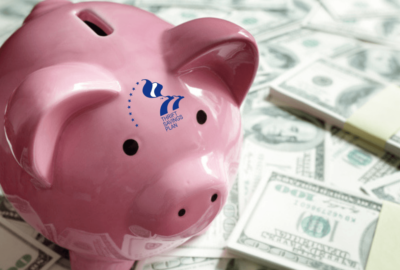
Want your tax break now or later? Or both?
Thanks to a 1997 tax law that included the then-new Roth option, many people saving for retirement now have two choices.
If you are looking for a tax break would you prefer it now, on your regular biweekly paycheck from Uncle Sam, or later when you retire and begin receiving a monthly annuity? Or how about both?
Thanks to a 1997 tax law that included the then-new Roth option, named for Sen. William Roth (R-Del.), many people saving for retirement now have two choices. They can defer taxes on money they put into a regular IRA or 401K plan, like the federal Thrift Savings Plan, or they can put after-tax money in the TSP’s Roth option or a Roth IRA.
Or in some cases, both.
Feds get a special break because there is no income limit to contribute to a Roth TSP account; the amount you can contribute to the Roth TSP account is set by the IRS, just like the traditional, which is $19,000 for most people plus $6,000 in “catch-up” contributions if you are over 50 years old. As a result more and more working feds are putting after-tax money into Roth accounts. When they withdraw it after they retire, everything in that Roth account will be tax-free, assuming they meet the IRS’ test — like having the money in the Roth TSP account for at least five years and you are 59-and-a-half years old when you take your money out. What’s not to like?
As of June, there are 5.69 million active, retired and military participants in the TSP. The average account balance for the 3.4 million Federal Employees Retirement System participants is $145,4574. The average account balance for the 306,459 Civil Service Retirement System participants is $154,091. But many of them also have Roth accounts.
As of last June, according to the Federal Retirement Thrift Investment Board, 576,078 workers under FERS had Roth accounts with an average balance of $14,198. There were 10,118 CSRS participants with Roth account balances averaging $21,817. The average account balance for the 534,373 uniformed services participants was $9,613.
When they cash-out their regular TSP plans that money will be taxed at the time. But those who cash out Roth accounts, which were taxed going in, will pay nothing in income taxes no matter how much that account is worth.
Roth IRAs and the Roth Option are a good deal and a smart move for some people. For others the traditional pre-tax contribution to a 401K with its immediate tax break is best. When in doubt, consult a pro.
Bottom line: Just looking at the numbers tells you a lot of active and retired feds have done their homework. As a result of that, many of them will be among the most affluent people in their retirement communities.
Nearly Useless Factoid
By Amelia Brust
The reason you can’t put out a grease fire with water is to do with oil and water molecules’ polarity. The polar water molecules and nonpolar oil molecules want to keep as far away from each other as possible. If you pour water onto a pan of hot grease it sinks right to the bottom, underneath the fire, because water is denser than oil. Then, because water boils at a lower temperature than grease does, the water instantly turns from liquid to vapor. That vapor carries the grease with it and spreads out of the pan. You’re better off immediately turning off the heat and covering the pan with a lid, dousing it with baking soda or using a fire extinguisher. If those fail, get out and call 911.
Source: Allstate
Copyright © 2025 Federal News Network. All rights reserved. This website is not intended for users located within the European Economic Area.
Mike Causey is senior correspondent for Federal News Network and writes his daily Federal Report column on federal employees’ pay, benefits and retirement.
Follow @mcauseyWFED





